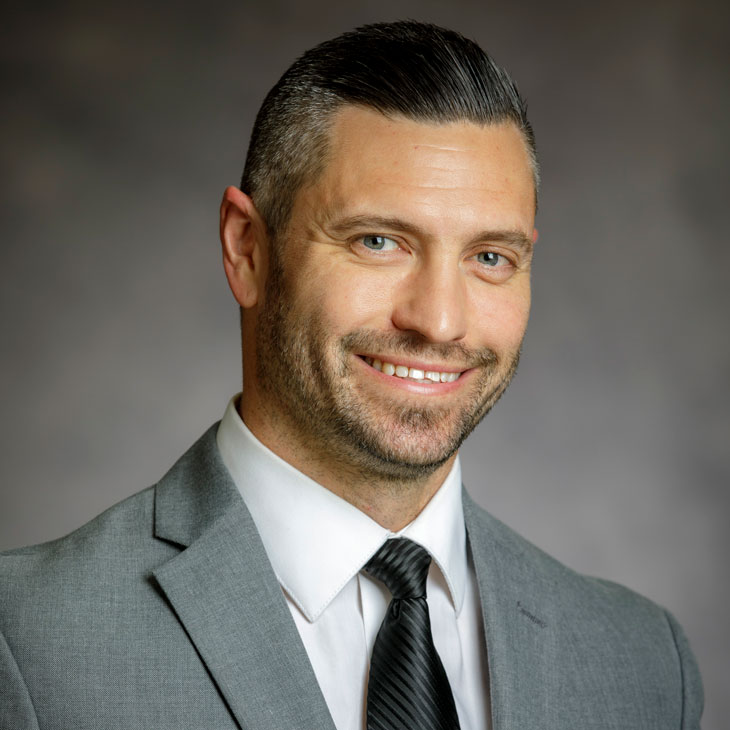
Vet Med Faces of Research: Dr. Craig Miller
Tuesday, February 2, 2021
Craig Miller, DVM, Ph.D., Dipl. ACVP, is an assistant professor and anatomic veterinary pathologist in the Department of Veterinary Pathobiology at Oklahoma State University’s College of Veterinary Medicine. He also serves as a diagnostic pathologist for the college’s Oklahoma Animal Disease Diagnostic Laboratory and conducts research.
“For the better part of 15 years, I have been doing infectious disease research and for the last 10 years, I have been focusing on the pathology of viral diseases,” Miller said. “My laboratory, the Companion Animal and Translational Science Lab or CATS Lab, focuses on companion animal diseases and how those can be translated to help the human medical field. Specifically, we study cytauxzoonosis, which is endemic in the Oklahoma region. We look for ways to mitigate this disease in domestic cats.
“We also have a larger project looking at COVID infection in domestic cats and how that can be not only used to inform pet owners, but also used to study the disease and potentially develop new applications that might be applied to the human medical field.”
While Miller’s team is still in the early stages of investigating the link between domestic animals and COVID infection and the link between them and humans, the team has made some discoveries.
“We are learning that the virus infects animals the same way it infects humans using similar receptors,” Miller said. “It does have some differences in the clinical signs that it produces. But the most important thing we are learning is that because it infects animals the same way as humans, we are able to look at the way it infects these animals, how it affects their clinical signs and their immune system, and use that to gain insight on how we might combat this disease in humans and animals alike. We can use that information to not only inform owners and make recommendations during this crisis but also hopefully come up with some advancements to treat this disease.”
The opportunity to help both animals and humans draws Dr. Miller to do research.
“What excites me the most about the research we do is the potential for us to not only help our veterinary species but then to translate that into applications that can help humans and help advance the medical field. This idea of translational research is really exciting and provides an opportunity for veterinarians to help a larger cohort of individuals. Although most people think of a veterinarian as someone who focuses largely on veterinary species, our interests and our abilities actually allow us to significantly advance the human medical field.
“As scientists we’re always developing ideas and ways to test them and push the boundaries to advance science and technology. In doing so, not everything works. In fact, 99% of the time, our ideas don’t work. But when you find that one thing, when it works that one time, that makes it all worth it. That is what is truly exciting about research – when you are able to make a large discovery. So if you’re considering infectious diseases research, don’t give up. It doesn’t always go right. These infectious diseases don’t always read the book. There are so many intricacies, so many things that we don’t know and it takes time and effort to figure it out.”
Miller credits his team for all their hard work behind the scenes.
“I could not do this without the help of my graduate students, Miruthula Tamil Selvan and Eva Kao, and my lab manager Shannon Cowan. They are the real scientists in the trenches doing the work. It takes a good team to make research happen.”
Vet Med Faces of Research is a monthly series designed to inform the public about the impact of the numerous studies being conducted at Oklahoma State University’s College of Veterinary Medicine. Advancing knowledge and understanding for the benefit of the lives and livelihoods of the people of Oklahoma is a critical element of OSU’s land-grant mission. If you would like to support research at the college, please contact Ashley Hesser, assistant director of development with the OSU Foundation, at 405-385-0715 or ahesser@osugiving.com.
